#I am learning with duolingo and I can not find the pattern here
Text
*shaking the dutch language by the neck* when het instead of de??? tell me!!!
#I feel like a lot of times I am supposed to use het when I would use das in german#but at the same time it feels completely in correct and my dutch ffxiv guild members told me to just use de#and hope for the best/just wing it#but#I wanna knowwwwwwww#I am learning with duolingo and I can not find the pattern here#dutch language
3 notes
·
View notes
Note
Any recommendations for a person trying to learn Greek?
Yes, definitely! I also wrote a post on learning Modern Greek online.
I am not sure what your native language is or if you know any other languages. I studied German before Greek, and so I found Greek grammar very easy in comparison.
To start with, it's slightly more complex than Spanish for English native speakers since it uses a case system (changing noun, adjective, and article endings). But I found the patterns fairly regular and easy to remember! So it is not stressful at all. And since many words are similar between English and Greek, you will find it easy to pick up vocabulary.
For learning, this was what I did:
A1/A2
Timeframe: 9-12 Months, Depending on how fast you go
Tools:
Duolingo: 5-6 lessons/1 crown a day, or 30 minutes
Rosetta Stone: 3 lessons a day, or 30 minutes
Language Transfer Greek: 1-2 lessons a day, 10-20 minutes
LingQ: Free reading, when chilling out
When you finish Duolingo and Rosetta Stone materials, watch Eisai To Tairi Mou on Youtube. The wonderful George has subbed the whole series in English.
For textbooks, I used Take Off In Greek. I did 1 lesson a week after completing Duolingo/Rosetta/etc. This takes about 3 months. There is an audio CD, which you may need to buy separately. I'm not sure.
I also started tutoring while working on the textbook. I meet with Georgia on Italki, who is amazing.
B1/B2
I'm still working on this. 😉
Colloquial Greek is a good textbook here. It's very fast, though. Lots of vocabulary. Routledge also has a Modern Greek Reader, which is advanced but quite good.
But if you want in-depth resources, look at "publications" from Omilo.
Lydia is a good review of A1/A2, all dialogues. They also have workbooks on verbs, Greek music, podcasts, etc. Their B1/B2 book is Fiyame, and it's all in Greek.
At this point, I would work through either Colloquial or Fiyame while working with a tutor 1-2x a month or more.
There is also a Greek Mastodon server - https://kafeneio.social/explore
I am not on this server, but I follow and interact with many people on it. I also use Greek as my default language. 😊
University of Athens
I want to point out that there is an affordable learning course from the University of Athens. It is an online course. They have multiple language courses, but they have a good deal.
Their basic level course is 150 EURO, but you can get it for less. If you buy one of their culture courses, many of which are 100/120 EURO, you can get the Greek course free. The culture courses are taught in English.
I hope this is all helpful! I find Modern Greek rather fun and easy to digest. So far, the grammar is not very difficult. And many of the A1/A2 resources are free or low-cost. Rosetta Stone can be bought for $167, I think, and be used for multiple languages.
106 notes
·
View notes
Note
So I’m learning Italian on Duolingo which means I’m not getting a whole lot of explanation but I am getting a lot of examples that seem to contradict each other.
How do definite articles work in Italian? When do you have to use them, when do you need to omit them?
I’m very lost. Every time I think I’ve figured a pattern out Duo throws an example at me that contradicts it and I can’t tell if I just don’t get it or if Duo itself is making mistakes (which happens!).
I get that the answer may be “you gotta learn to tell by vibe” but I’m coming at this from English, with familiarity with German and Japanese. I have no baseline vibes for articles in Romance languages. I could use some rules of thumb.
Thank you.
Ciao
Yeah I understand well your situation: Italian course on Duolingo is useless if you only use that as a source of learning. I realized this trying it myself and from other Italian learners who were as lost as you when it came to understanding the language and using it. I don't want to sound rude or anything cause I understand it seems helpful and well buildt but... I personally discourage its use as it contains grammar mistakes and, as you noticed yourself, it's unreliable and doesn't explain anything. It makes you rush through grammar but teaches you anything in the end. There are far better apps/websites imo and you can always use other grammar resources together with them so to clarify your possible doubts.
Now, to answer you, there are a bunch of posts here in the grammar masterpost and on my instagram (@/sayitaliano) as well all about the articoli determinativi (and indeterminativi too ofc + other variations). There are also posts about when to use them or not: on this specific matter though, I want you to know that there are rules exceptions that you will only learn with practice and once you'll get more comfortable with the language. Seen where you're coming from and all your confusion, I'd suggest you to stick with studying the general use's rules and grow acquainted with the right choice of article (you'll need to learn nouns genders too for this). It doesn't matter if you add an article when it's not required: especially in the beginning it's perfectly fine, just learn to use the right one and how (with which combination of vowels/consonants/gender/number). You can easily postpone the "when to use it or not" to a later moment.
grammar masterpost (look specifically at the articoli section)
The main post I am suggesting you and that you'll find in that section is the first one: articoli . There's also the when not to use (more links the masterpost) but again, I would suggest you to not add more confusion to your actual one, and just go step by step. Read the first 3 links of the articoli section and start with them (or read the 2 articoli posts on instagram, which are a resume of these posts). When you feel ready, go on with the others.
Let me know if you need anything or would like to practice what you learned with me one day :)
I'm up if you'd like to send a short text or a few sentences just to check your understanding of the rules.
#it#italian#langblr#italiano#italian language#italian langblr#language#languages#parole words#italian grammar#grammatica italiana#grammatica grammar#lingua italiana#articoli#i really dont like duo sorry i may be biased or whatever but i cant
24 notes
·
View notes
Text
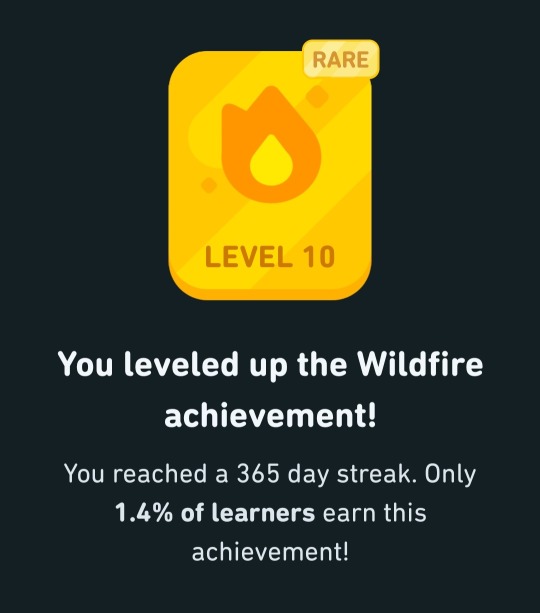
hit a full year of the most casual of Japanese studies on duolingo!
i dont really have any super lofty goals with this, and i am very aware that there are a lot of limitations with language apps, especially for japanese. i just started it kind of on a whim since i was writing two characters who can speak japanese, and i figured having more than zero knowledge about the language was worthwhile. but it's fun! i have some kana workbooks too that i like writing in when i'm watching tv but feel the need to do something with my hands because i don't know how to just sit still.
i also started studying it on lingodeer this year, too. i'm not as good about doing those lessons on the daily (even tho the little deer popping up with the "i miss you deerly" message makes me feel worse than the green owl yelling at me, lmao), but they're much better for learning kana than duolingo imo. in the context of lessons i can usually figure it out, but with no context so my brain can't cheat and find the pattern? yeah, not so much. i can consistently recognize the kanji for cat (猫) and that's about it, lmao.
but uhhhh yeah, proud of myself for sticking with something every day for a whole ass year. and this was a true 365 days--i never even had to use one of my streak freezes (although there were a few times it almost happened, like when i had covid). so here's to another year!
6 notes
·
View notes
Text
Some lovely anon sent me “thoughts on Sam and Enochian” and I accidentally deleted the ask, whoops!
Here we go then:
hmm. I know it’s a very popular headcanon to presume that Sam is fluent in Enochian because of, yknow, the stupefyingly large amount of time he’s spent with Lucifer.
I go back and forth on this, but personally I don’t think he’s truly fluent. Mostly because I don’t see why the Cage would be anything like a full-on language immersion environment. Lucifer places a huge premium on thorough communication—on conversation, on talking to Sam and knowing that he’s being understood completely. Lucifer also demonstrably really likes using idiomatic language: he likes using cultural syntax and references that Sam is familiar with, that he has existing context for, basically so that Lucifer can make better jokes. It’s not as funny if you gotta slow down to explain it past a language barrier.
[Incidentally—Sam and Lucifer have sooooo many inside jokes. Some of them, Sam even finds funny. Where’s the missing scene in s11 or 12 or 13 where Lucifer makes some deadpan reference and Sam can’t stop himself from snorting out a laugh and Dean stares at him. What if Sam noticed that Cas got funnier in s11. ]
I am absolutely enamored of the concept of high-stakes Cage Duolingo, though, and I definitely think Lucifer thought it would be funny to teach Sam all sorts of fun phrases and to like, put Sam in a 19th century schoolhouse and force him to learn irregular declensions.
[Hmmmmmm. Matildanatural? Trunchbull!Lucifer? jotting it down.]
But the lingua franca of the Cage was English. And while if Sam had remained longer, that might have eventually changed, I don’t think Lucifer would ever necessarily be interested in changing Sam’s primary language, because he wants to keep Sam with one foot grounded in the life he threw away.
Re: Enochian after the Cage: I do really like Sam weaponizing/picking and choosing from his traumas those pieces that are useful to him. He’s got an insane ability to compartmentalize. And languages and translation are things Sam generally enjoys. So if he tries, I think Sam is relatively good at separating his knowledge of the language from how he gained it, even if some of the vocabulary he mostly keeps tucked away skews toward the violent and the derogatory.
But I don’t think he often wants to try, unless need dictates it. Sam’s approach to coping with the Cage vacillates between trying to suppress it entirely, which, fair, and treating it like something he needs to holistically integrate. Lots of the deep, deep ways Sam’s changed between s5 and s7 he simply can’t set aside, but language arts might be something he can. It depends. This is also true of other things Sam learned in the Cage, of which there were assuredly many: coping mechanisms, patterns of thought and behavior and meditation, reading/appeasing people, solving problems, however much history and philosophy. And, naturally, board game strategy. ♟
#sam and lucifer#sam and trauma#sam and the cage#sam and enochian#ask game#anyway now I’m thinking about the chokey#and Lucifer picking Matilda out of Sam’s mental library of books he liked as a kid
68 notes
·
View notes
Note
Hi there! I really like your blog and wanted to ask you: Hindi is my native language, and though I am not fluent, I'm trying to be now so I can connect with my family in India. Do you have any tips or resources for being fluent in Hindi? I would really appreciate it! Again, love your blog!
It’s amazing to hear that you’re learning Hindi to try and connect with your family more! I know that you have some baseline knowledge of Hindi and I’m assuming that you don’t live in an environment where a lot of people speak in Hindi. I don’t know if you know the Devanagari Script so let’s just assume you don’t.
If you want to learn conversational Hindi, you are in luck! Most people in India (in big cities, usually) know and use English words in day-to-day conversation. And then learning a new script is not as important either, you can just work with romanisation (writing hindi in the Latin alphabet, which most of us do).
Romanisation has one problem though, there are a lot of sounds in hindi that can't be differentiated between unless you ready know the word like the soft and the had 't's and 'd's. The script isn't exactly easy, though it will greatly benefit you as Hindi is read exactly as it is written. So, I would suggest you learn it via YouTube. I found a good teacher on YouTube- Shachi Chotia. I also found this resource for learners, which might help you and help with grammar.
Now, the most important part- immersion. A lot of people find it hard to distinguish between the subtle sounds and pronouncing certain consonants (like ड़ and ण). I know a lot of language learners suggest music, but I'd advise against it as most Bollywood music incorporates other Indian langauges (especially Urdu and Punjabi) and uses a lot of literary words that are not used in everyday conversation. So, I find it a little pointless. And a little confession here- I know both Hindi and Urdu but even I can't fully understand a lot of the songs lol. I'd say that movies and Netflix shows. Remember, immersion is everything! That's the best way (imo) to acquire a language. YouTube too. Slayy Point is my personal favourite.
I would kind of recommend Duolingo as well, purely to learn the script at the start though. Duolingo doesn't do much for conversation, which is your end goal.
Also- a lot of things that they make you learn in langauge class aren't as important, like the days of the week, writing numbers in hindi (just use the numbers we use in English) and numbers past twenty (honestly, you'd just be wasting you time- there's no discernable pattern to them and you'd waste your time).
I hope this helped you! Feel free to message me if you have a question/practice your Hindi :D
7 notes
·
View notes
Text
How did/do I learn vocabulary?
How did/do I learn vocabulary?
This is a question I’m asked quite often and I usually have a different answer each time. The reason is because I have no set way I learn vocabulary. This post will focus entirely on my experience and journey with vocabulary. Grammar will be a topic for another day. ;)
In my opinion, there is no set way to learn vocabulary. I can’t stare at lists and lists of words and suddenly they’re memorized, but I have! I can’t use flash cards because they take too much time, but I have! Kind of see where I’m going with this? I’m the perfect example of an informal or unstructured learner/studier.
I am a lazy learner. THE LAZIEST. I’m all for fast and easy ways to learn without so much as lifting a finger. Insane, right? Totally. Extremely insane for a beginner like I was. Butttttt, I did it though. Was it smart? Probably not. Did it work? Well… kinda?
I also want to point out that I’ve never studied Japanese in a classroom setting nor have I had tutors to teach me.
Okay, what I did:
I started learning Japanese on June 11, 2018. I’m going to list the resources I’ve done roughly up to this point in time that this is posted.
Please don’t take my views on the apps and resources listed as final say. Everyone learns differently and I suggest you try all of these resources out! Things that don’t work for me, may work for you and vice versa.
DuoLingo. It was the only app I really knew of that was credible. I drilled the crap out of that app! That’s how I got my foundations in kana, my first words, and first kanji!
DuoLingo is good in some ways, but bad in others. It’s perfect for repetition and getting you to think about those words over and over. But that’s also why it’s bad. Each step makes you go through like, what?, four or five tiers or whatever they’re called? By the time you reach that fourth of fifth tier, it’s just annoying to do that pattern over and over again before you can move on. This is just my opinion though, some people thrive off of that. Don’t knock it till you try it, ‘kay? I’ve heard the app has changed some since summer of 2018, so I’ll have to check it out again.
LingoDeer. Gosh, I love LingoDeer. I really need to use it more. It is the best app ever to introduce you to grammar when you have no idea where to start.
Workbooks. I got my first workbooks (not textbooks) at the end of June 2018 (I had been learning for roughly 3 weeks by that time). It was Learning Japanese Hiragana and Katakana and Learning Japanese Kanji Volumes 1 and 2, all published by Tuttle. As I worked through the kana book I managed to learn many vocabulary terms from the exercises in the back with the writing exercises (all spelled in hiragana and katakana, there is no kanji in that workbook). I tried and dabbled lightly in the Kanji Vol 1 book, but I wasn’t ready for that just yet back then.
I ONLY used those resources until the end of August 2018 and added Memrise too my list of apps during that time. I gained A LOT of vocabulary knowledge (and some basic grammar but that’s a post for another day) just from using three apps and a kana workbook over two and a half months.
It was nothing fancy like some people tend to think? I didn’t somehow learn all these words over night.
Textbooks. Genki 1 and it’s workbook was my first ever textbook. This is one of the most widely known textbooks out there for learning Japanese from scratch. Most people know how vocabulary works for that resource. Each chapter introduces vocab and you learn it as you study the grammar and do the exercises.
Um, so, I’m gonna be honest for a second. I HATE TEXTBOOKS. I hate them with a fiery passion. *clenches fist* I stopped using Genki after completing half of the book because I felt like I learned nothing. It just wasn’t the resource for me.
At this point you’re staring hard at your phone, tablet, or computer like WHAT? Yeah… I didn’t hate them at first!! But because of my laziness and informal learning style, I grew to haaaate them. Textbooks are too “cookie cutter” in my opinion. But Taylor, don’t you use one right now? Yes, and let me explainnnnnn. I find that textbooks don’t give you freedom to expand!
Remember when I asked on Instagram what were some things you’d like me to discuss or talk more about? One user messaged me and wrote,
“How [do] you apply grammar and vocabulary? Because I try to come up with sentences on my own then look up examples of its usage but I continuously use the same type of examples. But when I look at other example there is so much vocab and other grammar structures that go into play that I don’t understand, so it’s hard for me to find a balance that will make me push myself but also know that I can decently understand…”
That’s EXACTLY what I struggled with, with Genki! Textbooks only provide examples for that lesson and the grammar it teaches at that point. So you only know those words (and grammar) in those contexts only. You try to make your own sentences but you end up only using those words and those grammar points over and over.
There’s simply no opportunity to expand.
Then when you look up other examples you see other new words (and grammar) and it freaks you out because suddenly you don’t feel like you’ve learned anything! This is the e x a c t reason I hate textbooks.
My answer? For me, I don’t depend on textbooks anymore for vocabulary. They’re amazing for referencing vocabulary and pulling grammar structures, but textbooks only give a limited amount of vocabulary and if that’s all your rely on when learning grammar, it’s going to be rough. It stagnated my learning when I did that.
When I make my own sentences now, I pull vocab I've been learning from apps, social media, reading, etc. I could go on and on about this, but that’s not the point of this post. I’ll discuss my more of my hatred for textbooks later. Same with grammar and how I make my examples and such. I’ve already gone off on a tangent long enough, hehe. (I hope that answered the above question though! If not, I hope future posts will! Or just message me, lol.)
Other textbooks I have used after Genki for vocabulary gain is Basic Japanese by Tuttle and the にほんご90日 series.
YouTube. Japanese Ammo with Misa is my love. I love her videos and her personality. Her teaching style is relaxed, but she gets the job done. She has a wide variety of grammar videos along with lots of other videos related to Japanese and Japan.
After my downfall with Genki 1 and some discouragement that led to a nearly three months hiatus of studying, I started using her videos to get the grammar knowledge I needed in January 2019 (I have been learning (counting the hiatus) for about 6 months at this point).
It’s the perfect things for a lazy learner like me, hehe. I could sit down at my desk and watch one of her videos (they can be anywhere from 8 to 40 minutes long) and watch, pause, and rewind as much as I wanted to write notes with ease. I was learning the grammar I needed to know and learned SO MUCH VOCABULARY.
She uses common words you find in textbooks, but she also throws in culturally relevant words. She references Pokemon, manga, TV/anime, music, etc, vocabulary all the time! She even teaches the informal/casual variations of words along with formal/polite variations and that’s where I gain so, so, so much vocab! I still use and reference those videos to this day!
PRESENT DAY:
Okay, I just explained what I did to start learning vocabulary from the beginning to about ~5 months ago. I rambled a lot, I know… But did you kind of see the point I was hoping to make? I did not stick to one resource for learning vocabulary (and kanji).
I didn’t not, nor do I still, learn vocabulary in a “traditional” way. There is no one way to learn everything you need to know. Over that course of time I learn about ~35-40% of my current vocabulary knowledge. Wait… Taylor… You learned ~35-40% of your vocabulary over the course of 10 months, but you’ve learned the other ~60-65% in less than 5 months? Yes, and I’ll explain below~~~
What I mainly use now, app wise, to gain vocabulary knowledge is Memrise, Quizlet (rarely though), Kanji Tree, and LingoDeer. I even use Instagram to learn new vocab too! I follow users who teach vocabulary (and grammar) with their posts. Yes, you will see lots of repeated terms but that’s exposure and review!
Here are some profiles I really like for introducing vocabulary (new or review): boxofmanga, japanesepod101 (Instagram infographics only), japanese_language_mlc, j_aipon, blue_aoi, and _urabanashi_.
I also suggest you find native Japanese Instagram users. Not just celebrities or idols. I mean average natives who use Instagram the same way we use our private accounts. I follow larger profiles (500+ followers) for the fact that I don’t want to be a creep and follow someone who only has like 100 or 200 followers. So, I follow some “mommy blog” Instagram's because they tend to use simpler vocabulary when referring to their kids. I also follow some book reviewers, writers, and one guy who loves camping! You get to see lots of natural Japanese this way and it shows common words that are used. I don’t understand a lot of it, but I’m being exposed to the language!
And by now you’re asking, “Okay, but how do you learn vocabulary NOW?” I’m going into N4 if you’re going to look at this from a JLPT stand point, but I don’t only learn strictly N5, N4, N3, etc level material. (That’ll be another post too, lol. Pssst… it’s another “cookie cutter” issue with me.)
Well, those apps mentioned above, obviously, but those only make up about ~30% of my vocabulary gain now. I use my textbook にほんご90日 Vol 1 as a reference and gain some vocabulary there and I have a couple JLPT related vocab/kanji lists I use too, so that’s like another ~5% of where I get my vocab.
I get the other ~65% from reading. Yup. Reading. Literally that’s it. I read all the time. That’s one of the reasons I wanted to learn Japanese!
I have a short story digital bundle I read often from TheJapanShop.com and it’s aimed at beginners and becomes “harder” as you move to the next book and so on. I read through them and when my brain sees a word I know I’m like, “Cool.” But when I don’t know a word I see, I either look it up quick and write it in the margin or I continue on. I learn a lot through context clues.
Here’s an example sentence from Story Two in Book One of the Japanese Reader Collection offered from TheJapanShop.com.
「この傘は、雨が降るといつのまにか傘が開き、晴れると傘が閉じている…」
Roughly translated to “This umbrella opened unnoticed when it began raining and upon it becoming sunny the umbrella closed…”
When I read that sentence, I knew all the vocabulary except いつのまにか. The stories have lovely vocabulary guides, so when I looked it up, it said that it meant “before one knows; while unaware” and I took what I knew from the rest of the sentence and managed to learn that new word as a result! This is the best way I could explain how I use reading to expand my vocabulary… ^_^” Just taking what you know and expanding on it over time. I use this same method for grammar, but that’s saved for another post, lol.
I also use NHK New Web Easy to read articles about current events in Japan. It’s set up for native elementary and middle school students so they can read within the kanji and vocabulary they’ve learned so far in life. Guess what? That’s PERFECT for a language learner who has an okay-ish foundation with vocabulary. I learn so much everyday vocabulary that way.
Lastly, I read books and manga. Yup, manga. I don’t use these resources much right now because they’re bigger and more intimidating. I haven’t “officially” started a book but I’ve opened and read passages quite often to sort of test myself. Manga is simpler since there are fewer words than a novel, but they’re bigger than a short story or a news article. You’ve seen on Instagram that I’ve begun reading よつばと! and so far I’m having a blast! I’ll talk about specific things I’m reading later.
Sooooo…. That’s basically it.
Most of my vocabulary gain now is through exposure to Japanese through social media (bless the internet), reading, and some usage of apps like Memrise and LingoDeer. I use no formal education or study plans or any structure at all.
My word retention grew to be nearly double these last ~5 months because I built on what I knew and it grew easier and easier for me to learn and retain those words over these last few months. I never believed it, but there is definitely a language hump. Once you crawl over that, things simply become easier. It just takes A LOT of time and effort (and tears) to get over that hump. But, I believe anyone can do it, you just have to be determined and eager enough.
One tip I like to give is to learn through context. Don’t just learn lists of words and kanji. What’s the point? You can recite them, but can you USE them?
Oh, quick thing, I want to point out about how I personally learn vocabulary. I failed to realize this right away when I started learning Japanese, but quickly caught on and now hold onto this belief firmly.
I learn vocabulary and kanji together.
I do not separate the two. I do not have a separate notebooks for vocabulary and kanji. I don’t even have a notebook at all actually for them, lol. When I post on Instagram that I’m focusing on kanji today, it means I’m just learning vocabulary or reviewing it. The 1026字の正しい書き方 book I use that teaches “kanji” is mainly for vocabulary expansion and how to write those kanji (stroke order). I don’t study the individual meanings of the kanji character, I study the example words it lists. That’s one way on how I’ve been expanding my vocabulary so rapidly.
Kanji is vocabulary.
Kanji should be treated the exact same way that hiragana and katakana are treated in my opinion. Jokingly, kanji is just fancy kana. ;)
If you “fear” kanji, you’ll have a bad time. I joke and say now when I see an insane kanji or a difficult one, “Damn, that’s some angry squiggles right there.” and it makes learning it that much more enjoyable. :)
For example, 食 means “eat, food.” Okay, cool that kanji has a food related meaning. But I’m not going to do that for thousands of kanji especially since each kanji has multiple readings depending on how it’s used. It’s simply impossible! I found I personally learn better when I learn the kanji in it’s “true” form, aka, in WORDS.
食べる - to eat / 食べ物 - food / 食事 - meal / 朝食 - breakfast / etc.
Holy crap, not only did I learn the kanji 食 effectively, I learned four words and THREE other kanji! (I’m over dramatic, I know, lol.)
Vocabulary is all interconnected. You can’t learn one thing without stumbling and learning other things by accident. Learning through exposure is the best in my opinion. It’ll be tough to begin with when you don’t know much and it will cause you to doubt yourself and your ability to learn this language. But, just be patient. Learning five, three, or even one word a day is progress.
Small progress eventually builds up to big progress as Yuta says. ;)
Words are meant to be strung together and form sentences for you to read, enjoy, and react to. That’s why books exist. You read those words and sentences and they make you feel warm and fuzzy or cry or laugh. Don’t keep them at an arm's length and treat it like it’s some delicate flower. Language is a not just lists of words, kanji, and grammar points. It’s a culture and way of life for people. Treat it like an old friend and play with it (or go get a beer with it, ya know, whatever gets this point across, lol)!
I tend to treat language learning like I’m a curious five year old. I’m constantly asking questions and discovering new things and it just sparks that fire that makes you want to explore more and more.
I don’t take it seriously (from an academic view) and that’s why I find some stuff so easy. It only becomes difficult if you make it difficult. Everyone learns differently. There is no one way to learn Japanese and there is no one way to learn specific parts of Japanese. Also, don’t compare yourself! It only ends in self doubt and discouragement.
Explore and try out all sorts of things. Try out the free apps, read articles online, watch YouTube videos, just do SOMETHING. Don’t look for the “perfect” resource or routine. Just. STUDY. You’ll find in time what works for you and what doesn’t.
Language learning is no race. There is no ribbon or trophy at the end for becoming fluent overnight. Take your time and enjoy the process, you’ll be learning your whole life, ‘kay?
I’ll talk further on how I review it in another post. :)
32 notes
·
View notes
Text
weird asks that say a lot
in
1. coffee mugs, teacups, wine glasses, water bottles, or soda cans?
coffee mugs! it gives me a weird satisfaction
2. chocolate bars or lollipops?
chocolate bars!!
3. bubblegum or cotton candy?
not a big fan of either :/
4. how did your elementary school teachers describe you?
well
i’m homeschooled
so that’d be my mother
the gist of it was that i don’t focus well and get distracted easily
5. do you prefer to drink soda from soda cans, soda bottles, plastic cups or glass cups?
oh bottles for sure
cannot tell you why
but the old fashioned glass bottles of like pepsi or something? Love Those
6. pastel, boho, tomboy, preppy, goth, grunge, formal or sportswear?
grunge
i love it
has the ‘i don’t care’ attitude
basically just oversized stuff and a whole bunch of flannels
7. earbuds or headphones?
headphones obviously, i’m a gamer what did you think i was gonna say
8. movies or tv shows?
i tend to like movies better, but i do love myself a good tv show
i think the pinnacle of tv shows done right is person of interest
five seasons, i never got bored, it didn’t drag on, and it was always a good watch with good character chemistry
9. favorite smell in the summer?
hmm
either chlorine or beach smell
because both mean i’m in the water
And Ya Boi Is A Water Bitch
10. game you were best at in p.e.?
i’ve never had p.e. and i think that’s my favorite thing about homeschooling
11. what you have for breakfast on an average day?
i normally don’t, because i wake up 11:30-noon because i was up at 3am and i need my eight hours of sleep
12. name of your favorite playlist?
some fucken bOPS
13. lanyard or keyring?
i’d think key ring
14. favorite non-chocolate candy?
uhhhhh
literally all my favorite sweets are chocolate fuck
probably cow tails
15. favorite book you read as a school assignment?
they all sucked and i rarely read any of them so
16. most comfortable position to sit in?
either sitting on my ankle or having both legs hanging over the edge
17. most frequently worn pair of shoes?
do flip flops count?
18. ideal weather?
like, 75-80 degrees with a cool breeze
or
alternatively
5-10 degrees with Piles Of Snow Everywhere
19. sleeping position?
usually on my left side, or my stomach
20. preferred place to write (i.e., in a notebook, on your laptop, sketchpad, post-it notes, etc.)?
i love writing on anything i can get my hands on, most times it’s a notebook
i tend to
always carry
pen and paper with me
because i Will Not Remember Anything
21. obsession from childhood?
you know how people have like, a timeline in their head of their entire life? i did this when i was this age, etc.? yeah i don’t have that
my memories are in a big pile in my head
and i have to use like
things around me to find out a general age
it’s wild
so i have no idea
coloring? minecraft?
22. role model?
any kind person ever
23. strange habits?
i only shower at night, and once i get in my room and change into my pajamas i have No intention of leaving so i just brush my teeth in the shower
24. favorite crystal?
amethyst? quartz? garnet? idk
onlytherealonesknow
25. first song you remember hearing?
it was a song that my mother used to sing to my brother and i at night when we were in bed, did you ever talk to God
i’ve never been able to find it anywhere, but i love it and it has the Best Vibes attached to it
26. favorite activity to do in warm weather?
S w i m
27. favorite activity to do in cold weather?
cuddle
obviously
28. five songs to describe you?
uhh
dear younger me- mercyme (Christian)
the cult of Dionysus- the Orion experience
lucky stars- Lucy Spraggan
escapism- steven universe? maybe?
sunkissed- Khai dreams???? bro i got no idea
29. best way to bond with you?
over shared experiences, or a shared love of something
just
best way to bond? by relating
30. places that you find sacred?
not sure
old buildings, sites of historical importance, places marred by tragedy
31. what outfit do you wear to kick ass and take names?
oh boy here we go
my tightest pants, obviously, my heels, and my slutty shirt
or my comfy clothes
i can kick ass in anything
32. top five favorite vines?
i am the sand guardian, guardian of the sand. Posiden quivers before him! fuck off!!
*BAM* this is why mom doesn’t fUCKING love you!!!
please let this be a normal field trip. with Miss Frizzle?? un-fucking-likely
Jeremy eat a snickers. why? you’re not you when you’re hungry. it’s gonna take more than that for my fatass
meanwhile, in 1957. your honor, permission to treat the witness as hostile. permission granted. i’m gonna shoot you in the face. that’ll ruin my day
33. most used phrase in your phone?
i have
no phone
but i do say valid a lot because All You Fuckers Are Valid
34. advertisements you have stuck in your head?
michigan plumminggggg, we’ll exceed your expectaaationsssss
35. average time you fall asleep?
three am
36. what is the first meme you remember ever seeing?
37. suitcase or duffel bag?
backpack
38. lemonade or tea?
lemonade
39. lemon cake or lemon meringue pie?
cake
40. weirdest thing to ever happen at your school?
idk the cat pissed on my brother’s papers once
41. last person you texted?
moje rojenia
42. jacket pockets or pants pockets?
Hoodie Pouch
43. hoodie, leather jacket, cardigan, jean jacket or bomber jacket?
hoodie, obviously
44. favorite scent for soap?
Manly Smell
45. which genre: sci-fi, fantasy or superhero?
mmmmmm sci-fi
46. most comfortable outfit to sleep in?
long sleeve tee, plaid pajama pants
47. favorite type of cheese?
Mozzarella
48. if you were a fruit, what kind would you be?
pineapple
i’ll eat you out ;)
49. what saying or quote do you live by?
if someone makes you happy make them happier
50. what made you laugh the hardest you ever have?
my mother made the weirdest fucking sound once, and i couldn’t breathe and fell off the chair
51. current stresses?
school, driver’s training, some other stuff
52. favorite font?
Kristen ITC
53. what is the current state of your hands?
????? clean?? i have a ring on my right middle finger, some scars on both hands, my nails are short
54. what did you learn from your first job?
haven’t had a job yet
55. favorite fairy tale?
any of the old Grimm’s fairy tales
they terrified me when i was young, but then i got a taste for the disturbed and gore so they became perfect for me
56. favorite tradition?
my family doesn’t really have any traditions
57. the three biggest struggles you’ve overcome?
gaining confidence to not be a complete pushover, quitting self-harm, realizing my first relationship wasn’t my fault
58. four talents you’re proud of having?
i don’t
have four talents
i can color really well? i can copy drawings if i look at them long enough
59. if you were a video game character, what would your catchphrase be?
Fuck
60. if you were a character in an anime, what kind of anime would you want it to be?
something along the lines of kabaneri of the iron fortress or my hero academia
61. favorite line you heard from a book/movie/tv show/etc.?
give me something to keep and hold onto forever. let go
62. seven characters you relate to?
uggggggggh bro my personality changes every hour i don’t know
Sam, from supernatural
uh, Klaus? from the originals
....
yeah that’s all i got
63. five songs that would play in your club?
dangerous- left boy
adderall- Max Frost
sweet tooth- Scott Helman
binary mind- ra ra riot
while i’m alive- STRFKR
64. favorite website from your childhood?
club penguin and jumpstart
65. any permanent scars?
tons
66. favorite flower(s)?
coral dahlias and bellflowers
67. good luck charms?
nope!
68. worst flavor of any food or drink you’ve ever tried?
quinoa, mustard, and root beer
69. a fun fact that you don’t know how you learned?
without saliva your stomach would digest itself
70. left or right-handed?
right
71. least favorite pattern?
whatever the fuck this one is

72. worst subject?
math
73. favorite weird flavor combo?
ranch and any kind of roast
74. at what pain level out of ten (1 through 10) do you have to be at before you take an advil or ibuprofen?
probably like a 7
75. when did you lose your first tooth?
neither i nor my mother remember
76. what’s your favorite potato food (i.e. tater tots, baked potatoes, fries, chips, etc.)?
Mashed Potatoes Always
77. best plant to grow on a windowsill?
strawberries!! they’re yummy and have beautiful flowers
78. coffee from a gas station or sushi from a grocery store?
both are gross no thank you
79. which looks better, your school id photo or your driver’s license photo?
well since i don’t have my license yet, i’d have to say my license
80. earth tones or jewel tones?
earth tones
81. fireflies or lightning bugs?
they’re
literally the same thing
are you asking which one i say? if so, lightning bugs
82. pc or console?
both! i prefer pc but a lot of my favorite games are on console and i don’t have a gaming computer
83. writing or drawing?
i’m better at writing, but i love both!
84. podcasts or talk radio?
not a huge fan of either
84. barbie or polly pocket?
i never had or liked either
85. fairy tales or mythology?
faerie* tales and mythology
86. cookies or cupcakes?
cookies!!!
87. your greatest fear?
being abandoned ig
88. your greatest wish?
to live an apple pie life i suppose
my partners and i living in a house we love, in a town we love, with all of our fur babies
89. who would you put before everyone else?
the young
if i was in a room full of people, relatives, friends, elders, i would always save the youngest
90. luckiest mistake?
posting my diary on ao3 XD
i met my darling Leo through it
91. boxes or bags?
f....for???
bags are easier to carry, but boxes are just Nice
.....
see this is why i think i’m a cat
92. lamps, overhead lights, sunlight or fairy lights?
i love sunlight and fairy lights
93. nicknames?
Q
that’s
that’s basically it
94. favorite season?
fall
95. favorite app on your phone?
duolingo or pixel.y 3D
96. desktop background?
school computer:

97. how many phone numbers do you have memorized?
just my mother’s
98. favorite historical era?
anything Ancient
greek, egyptian, incan, aztec, that kinda stuff
#tw cursing#tw self-harm#long post#tw eye strain#probably gonna crank out a few of these today because i'm Bored#meet the blogger
3 notes
·
View notes
Text
Being a Student With A Mental Illness: A Masterpost
Hey! As some of you may recall, I made a masterpost a little while ago about helping your mentally ill friends through exam periods. I thought I’d make a follow-up masterpost of sorts about helping yourself as well as your friends, because self-care is incredibly important! I hope these tips help!
1: Track your food and water
There’s no point in me going into much detail with this, but it’s always a brilliant place to start. Put simply, your body functions best when it’s well fed and watered, but if you’re ill then that can be hard to do, let alone remember. There are millions of methods out there to help you remember to eat and drink, many of which I’ve experimented with, but here are my favourites:
- Logging it in a bullet journal habits tracker- when I’ve been struggling I find it helpful to write down my tasks and activities because my memory tends to be the first thing to go. Using a habit tracker in my weekly spreads meant that I was able to tick or colour a box once I’d had at least one bottle of water, and do the same once I’d eaten a solid meal or two in a day. It means you know if you’ve looked after the basics that day at a glance and can be a gentle reminder if you use your bullet journal a lot.
- An app, such as Aloe Bud- by no means is this the only app to do this, but @aloebud is definitely one of the cutest. It works by you setting up different little tasks to accomplish and you can add in little reminders periodically as well, which works great if you want to set up a slightly more rigid eating pattern or forget to drink water during the day! This post explains it pretty well but if you’d like a more detailed guide then drop me an ask! (Disclaimer: I believe this app is only available on iOS at the moment but hopefully an Android one will be released soon, too!)
2: Set out time for yourself
This is one I have yet to implement fully, but I intend to! It’s great if you already have your self-care routines nailed, but if you end up running out of time to do said routine then you’re inevitably going to feel rushed off of your feet and stressed, procrastinating on looking after yourself. A solution to this is scheduling that routine in: if your head to toe self-care routine takes two hours, then put it on your timetable, in your iCalendar, or wherever else you stay organised, as if it were a two hour class. The same also goes for hobbies you want to pick up or skills you want to learn- if you have time specifically set out for those things, then it means that you’re more likely to do them, and less likely to procrastinate on your final paper by racking up the highest daily score DuoLingo has ever seen.
3: Set earlier deadlines
I started doing this in my first semester of university and it’s changed my life. Luckily, with some self-discipline, it’s not too hard to pull off, either! Let’s say the deadline for your Super Important Terrifying Paper is March 18th. Note that deadline down somewhere, but when you’re writing down the deadline in a bullet journal or a note on your phone, write the date 5 days earlier- for example, March 13th. This gives you time to finish the assignment earlier and get it proofread, and you’re considerably less likely to be submitting it on 11:59PM if the deadline is 12:00AM. Plus, anyone with any type of mental illness is likely to agree that working under pressure absolutely sucks and can worsen your symptoms. Just make sure you also keep a note of the real deadline so you submit it!
4: Plan out work in detail
This is actually just a good tip for life, but it’s especially applicable to mentally ill students. Once you have your assignment brief, it’s pretty good practice to map out what you need to do to complete the assignment within the first week or two. But instead of jotting down “write section A”, “write section B”, “write bibliography”, try to break it down even further. Try and do it as small as possible, or as small as is helpful: in my worst moments, it’s helpful to look at my to do list for an assignment and find it broken down into the six or seven things I need to do to write section A. The to-do list may be longer, but it stops me from being confused and makes me feel like I’ve accomplished even more than I already have!
5: Make a study timetable
This tip is, by far, the scariest, but I found that it really helped during my A Levels! It’s all too easy to fall into the trap of saying you’ll study for an exam tomorrow, and by the time tomorrow comes it’s the day before the exam. That’s the worst, even if you’re completely mentally healthy, and it’s so common because exam seasons are overwhelming. However, if you divide your subject content up into smaller sections and set out a plan to study a little bit every day, with some time to review in the last few days before the exam, then it can feel a lot less terrifying. Be warned that if you’re doing this for more than a month or two it can be easy to burn out, but if you take it at your own pace and give yourself three or four weeks then you should be okay!
6: Talk to your institution’s mental health team
Throughout my academic career I’ve been incredibly lucky to get some really great support from my school/college etc’s mental health team. This does not necessarily mean a referral to counselling or psychiatric help (but those are both brilliant options if you want to try them!), but for me at least it has meant that I was able to get some leeway surrounding exams and assessed work. For both GCSE and A Level I sat in a smaller room to do my exams due to anxiety, and if I am unable to meet a deadline for reasons related to my mental health, I can email my university’s mental health team who can help me to officially ask for an extension, and appeal if my application is overturned. Even if you are not as lucky as I’ve been, there is absolutely no harm in you asking your institution for some help. This is especially true in larger places like universities! Your lecturers are likely to not know you as well as previous teachers may have and will not be able to tell that you are struggling unless you tell them. They mostly don’t bite and are usually more than willing to help you catch up or give you extensions or pointers for assignments. And for the record, it’s not weak to ask for help: it’s one of the strongest things you can do!
Thank you for reading these tips, I really hope they’ve helped at least a little bit! Please feel free to drop me an ask or a message if you want to talk, and I would love to hear any of your tips!
#studyblr#mental health#mental health masterpost#studyspo#studyred#morganastudy#emmastudies#lookeliz#heyukstudying#intellectys#gloomstudy#studyingdaisies#scholarstudy#hellostudyingwug#juliasacads#erasign#studylustre#studylilac#studyquill#studyign#studypetals#lookstudyblr#my posts#mine
37 notes
·
View notes
Text
Getting started learning Japanese.
Here’s some resources I’m using to learn Japanese and what I think they do well and not so well. This is all based on my own experiences and what works best for me.
I will be rating based on the following criteria: Cost, Is it easy to use?, How much does it cover?, Pros, Cons, Overall impression.
Tofugu
I’m replacing a previous recommendation with this one. Far superior. I’ll just get right to it.
Free. Easy to use.
Pros: articles on just about everything. Theres a podcast. And every month they post resources for learning japanese. I highly recommend this website for these posts alone.
Cons: some content you gotta pay for but as far as i know they don’t duck around with people’s trust. They are the creators of wanikani and they gotta make money somehow.
Overall: far more useful that the first website i had on here. Maybe I’ll add more details later, but I just wanted to update this one as quickly as possible.
Japanese from Zero (video series)
https://www.youtube.com/playlist?list=PLOcym2c7xnBwU12Flkm5RcLIEhvURQ8TB
Cost: free
Easy to use: yes. Theres a nice playlist so all you have to do is sit and watch.
How much does it cover: You start out knowing absolutely no japanese and by the end of lessons you will know two writing systems. Basic sentence patterns and grammar. There is even a kanji series.
Pros: nothing is easier than sitting and watching videos to learn. You can play it anywhere at anytime. George has been teaching/speaking Japanese for years so he knows where students get stuck. He gives good explanations and examples on when to use new content and when not to use the new content.
Cons: because its a series, sometimes George refers to previous lessons or his book and you may be missing some context if you start in the middle or skip through some lessons.
Overall: The first lessons were painful to get through because It starts out with romanization and if you already know the writing systems, seeing the romaji on screen is like listening to nails on chalk. Not to mention I have a personal beef with numbers and counting as well as the common phrases like “おはよう”
But it is called Japanese from Zero and it is meant for someone who knows absolutely nothing about japanese so I can forgive the painful beggining lessons. Once I got past the introductory stuff the videos became more enjoyable.
Duolingo (app)
Cost: free
Easy to use: yes
How much does it cover: basic japanese sentence patterns, all three writing systems and a handful of new vocabulary.
Pros: teaches new words and sentence patterns and really drills them into your head. Gives you a few new words at a time so you can take the time to learn them without being distracted from all the other words you need to learn. You can go into the course as a Japanese person trying to learn English and really get the most out of Duolingo because the japanese version starts out with Kanji and even gives polite and casual sentence forms.
Cons: very repetitive. I don’t find fault with this but a coworker of mine found this to be very annoying and I can understand why. Duolingo says the lessons will get harder but instead its the same lesson except now you have to review it 10 times instead of 5. That’s not exactly hard, that’s just tedious. My biggest gripe with duolingo is that it doesn’t explain particles or why the kanji has different readings. In order to figure that out I had to go and do my own research which isn’t a big deal but if you’re only using duolingo by itself it makes it harder to understand why you keep getting things incorrect and subsequently how to fix it.
Overall: I will admit I am biased towards duolingo because I’ve used it for Spanish, French, Italian, and now Japanese. I was there from it’s early days when it was absolute shit and it has come a long way. I recognize the issues with Duolingo right now but I know that they are constantly updating. Painful as it may be to keep hearing 六時六分です it really is teaching you sentence patterns that you can use to make your own sentences. You just have to go out and do a little extra work yourself. It is, by far, the easiest to use and the method I use everyday.
TinyCards (app)
Cost: free
Easy to use: yes
How much does it cover: it covers a lot of vocabulary phrases and even sentences. You can probably get a lot mileage out of this one if used correctly and if you’re willing to put in the work
Pros: dozens of pre-made flashcards to choose from and the ability to make your own. Cards come in sets that you can unlock by finishing the first set similar to duolingo. A lot of other flashcard apps work in a similar way except they make you pay for the rest so I appreciate that this one is free of charge. Plus you can find flashcards specifically from the duolingo courses so you can study the vocabulary in isolation rather than in a sentence. Interactive flashcard system. So you don’t just flip cards and call it a day, occasionally you will have to write out the translation in the target language or pick from several choices.
Cons: the difficulty can be a little inconsistent. Sometimes you just flip a card and say I remember that one and other times you’ll have to translate a full sentence in Japanese. Even if you get the kanji right, you may get the answer incorrect because the card wants the hiragana and vice versa. And because there are so many card sets to choose from, not all of them are useful.
Overall: a sister app to duolingo it seems. Cards come from the community of learners and are not limited to japanese or languages. You can also learn about history, art and pretty much anything else. I appreciate the interactive aspect as most other apps don’t do this and the ones that do are muuuch more inconsistent than this one. I found similar interactive flashcard apps that would sometimes show Vietnamese translations instead of English translations. I’ve only recently been using this one but I pretty much gave up on using other similar apps bc they were very inconsistent. I haven’t used it very much though because I’ve discovered that I’m not a flashcard learner. If you learn best with flashcards then I would recommend it.
Tae Kim’s Guide to Japanese (website/pdf/app)
Cost: free
Easy to use: relatively. Just read the damn thing. I get it though. Reading is very tedious
What it covers: It really is a beginner to advanced beginner guide covering the same things as all the above. Basic grammar, writing systems and such. One thing that is very unique about Tae Kim’s guide however is that it also includes cultural notes such as explaining casual vs polite speech. Male vs female speech that a lot of the other resources don’t even touch on
Pros: A very good starting point that covers so so much. The website has an option to show/toggle translations. Additional cultural notes plus examples. Almost every“how to learn japanese” guide points to this website
Cons: one of the reasons I was holding out on making this list was because I haven’t finished going through all the resources so I don’t have any cons for this yet. I’m only part-way through and I’ve yet to have any issues with it. Maybe just that once it gets the point across it immediately moves on. You don’t really have time to digest the content so It’s like a very in-depth crash course in japanese. You may need to go out and do extra research in order to really understand the content. If you don’t understand what is being taught, just read over it again and keep it in mind. I’ve found that I’ll come across more examples as I continue my studies and it all starts to fall into place
Overall: It doesn’t sugarcoat Japanese or treat the learner like a baby. If you read the introductory page, you’ll know what I’m talking about. Definitely influenced my approach to learning despite not having gone through all of it. Like other resources, it builds on top of topics already covered but it’s nice having a book-format with conjugation charts and lessons separated by chapters. Videos and podcasts are nice but Tae Kim’s guide also acts as a manual to supplement your learning. Maybe you want to write a sentence in the masu-form and need a quick reminder? Just flip to the page in the guide. No skipping through videos trying to find the part you need because it’s already there.
Manga Sensei (podcast/website)
Cost: mostly free. I believe theres some extra stuff you can purchase. I’ve seen a special podcast that requires payment and comes along with a free pdf. But for the most part, you get a lot of free content.
Easy to use: relatively. Havent been on the website much so for all i know it could be a mess
What it covers: the podcast covers a lot of grammar points and occasional vocabulary and cultural notes. Gives you a good foundation to build on top of. The website has more details on what the podcasts are about but I haven’t spent much time on the website as I have the podcast.
Pros: grammar points in 5 minutes or less. Differences between common words. Good for improving listening skills. If you’re driving or on a bus, you can learn on the go.
Cons: so much to choose from you kinda have to sift through what you need. Most of it is useful and there are a couple of repeat lessons as Manga-Sensei has a beginner’s guide every year. Because its audio only, you may be learning new words and grammar but you may not be able to identify them as quickly on paper. Best to supplement with some type of visual. I believe the website has something to solve this and I’ve heard there is a youtube channel as well? Although I am not sure.
Overall: If you’re going on a long car ride, folding your laundry or even just working-out, this is a great way to stay on top of your studies. Manga-Sensei has talked a lot about his projects such as his manga, alternate podcasts, and pdf. Even though I haven’t taken a look at all of them, it’s clear he’s working hard to bring content for listening, reading, and conversation skills. That being said, the podcast is just as good for learning as any other method. You can still understand the lessons (which are meant to be short and simple anyway)
Japanese Ammo with Misa (Video Series)
https://www.youtube.com/channel/UCBSyd8tXJoEJKIXfrwkPdbA
Cost: free although she has a Patreon as well if you want to support her.
Easy to use: yep
How much does it cover: A Lot. From basic videos about grammar to more complex videos breaking down japanese songs as well common phrases and little notes that you may not find in a textbook
Pros: Her lessons have a lot of examples and good breakdowns of the grammar and tense. If a verb is in the past-negative tense, she will break down how to get to that point from the plain form or dictionary form. The best part about her videos is that she has her examples on-screen and color-coded. It may seem like a lot at first, but once you adjust to it, it helps to retain the information.
Cons: Because there’s so much content packed into her lessons, I recommend getting a basic knowledge of Japanese first. She has a video series for basic/introductory Japanese. I would suggest starting with that series or George’s series, or Tae Kim’s guide. Just so you don’t get an information overload.
Overall: There is one video in particular that I recommend to watch and I’ll make another post about it, but I really enjoy her content. Even though some of her videos are very dense with information, the comments suggest that its still easy to follow. I just think that while you can still learn a lot as a newbie, you might retain more if you already understand some grammar.
Japanese (app)
Cost: free holy shit!!
Easy to use: relatively
Pros: search using english, japanese, radicals, or drawing the kanji itself. Flashcard system, where you can build your own decks or use a pre-made one. The flashcards operate on a spaced repetition system. Plus it provides example sentences, compound breakdowns, stroke order, conjugations and JLPT level.
Cons: The drawing search method is sometimes hit or miss but i’m impressed the app has this option at all, let alone that it does not crash the app (like some others I’ve tried). The pre-made decks can have up to 400 words or more which is great if you have that kind of patience but I rarely find myself excited to sift through all of those words only to have about 10 of them be useful to me.
Overall: Okay it’s not like this app is super amazing or revolutionary but it’s a dictionary and flashcard sytem all in one. Say you want to keep a record of the new words you learn to refer back to them later? Make a new deck! Or if you’re reading a book or newspaper and come across a word you don’t know? Add it to the list or make a new deck! I try use new words as often as possible to drill them into my head And although my studying has slowed a bit, this app is perfect to double-check spelling and usage. (At least until jisho.org gets an app). Plus it’s easier to learn and remember words when you’ve come across them on your own.
3 notes
·
View notes
Text
Getting Started: Japanese
Hey so this is my first post on this side blog and I thought that I would just mention the steps that I’m going through to get started on my Japanese language journey in the hopes that it could help someone else if they want to learn a language but are feeling overwhelmed with the many options that are available to start of with.
It is important to note that in the case of Japanese, I have taken classes in the my eighth, ninth, eleventh and twelfth grades before finishing school and I have previously spent over a month in Japan from the beginning of January until halfway through February so Japanese is not at all a new subject to me. Much of what I’m doing now is trying to expand upon the limited knowledge that a traditional classroom method of language learning here is Australia dictates and fill in the various places in my Japanese that I know are lacking.
This brings me to Step One: Identifying goals, strengths and weaknesses. I think one of the most important things to remember when learning a language is that you are learning, and it is always best to recognise that there are some things that you will struggle with and others that you will find extremely easy. For me I know that my strength comes from my ability to recognise and memorise words, phrases and images quickly. I also know, however, that my greatest weakness is using this skill to overwhelm my own mind and ending up with too much to learn at once and never allowing myself to fully process what I have learnt by continuously testing myself after learning. By recognising this, I can make it a goal to limit how much I learn in one hit while also practicing what i have learnt previously often enough that I will remember it later.
My second goal stems from my next two weakness. My kanji level is incredibly low due to the way that I was taught kanji in school. There are various kanji that I recognise parts of however I was never taught what the kanji’s or radicals themselves mean. This means that it’s almost impossible to apply my kanji and reading knowledge to a real life situation because it is specialised to those i needed to learn in class.
To change this, I currently am using a website called WaniKani that breaks down the different kanji into the radicals that makes up each kanji before teaching the basic kanji and what they mean in Japanese. This will allow me to expand my kanji without having to choose them all myself which takes away a lot of the uncertainty and most importantly, the website its self limits how often i can use it. This means that I can’t rush my own learning.
This brings me however, to my third weakness. Vocabulary. This is probably fairly common but because my previous knowledge stems from classroom based plans, the vocab is also directly related to that. This means that in many real life speaking situations, the Japanese that I do know does not apply which defeats the purpose of knowing another language. In order to correct this, some of my information comes from WaniKani (who obviously teach the meanings behind the words that i’m learning as well as some extra vocab) and from another app called duolingo which I use to make sure that I’m always studying at least something everyday because it uses a streak system and I find it very useful.
This brings me to Step Two: Allocating Time. It is important to allocate your study time in regards to how much you want to learn, at what pace and most importantly at a rate that you can keep up with indefinitely. Having a set schedule for your studies will help to keep you on track as well as allow your brain to get into a rhythm where eventually it will be normal for you to study at a certain time and before you know it, you’re already in the mood without having to hype yourself up.
Finally there is Step Three: Allocating Supplies. This is more of a tip I found but I think it’s important enough to be a step and that is allocating separate supplies to everything you’re studying. It also pays to colour code what you use so that you don’t mix up languages (or any other topics you may be studying). This words similarly to step two in that it allows your brain to know when you pull certain supplies out, you are settling down to work and it will pray off in the end.
Obviously I’m no teacher specialist but I thought that I would share the first steps I was taking and see if it helps anyone. I also find that by writing out the first steps i’ve taken to really focusing on my language studies, it helps me to remember why I’ve done the things that I’ve done and helps me focus on continuing that pattern in my other studies.
XX Shellsan
#language#language learning#tips#advice#language learning tips#study tips#getting started#starting out#long post#japanese#learning
6 notes
·
View notes
Text
Five Things Your Boss Needs To Know About Doodle Art Ideas For Beginners | Doodle Art Ideas For Beginners
Studies appearance it takes, on average, 66 canicule to anatomy a habit. Admitting I achievement we’re not amusing break for addition two months, this is a abundant time to body the foundation for a new routine. Whether it’s acquirements a new accomplishment you’ve consistently capital to try, or extenuative money by teaching yourself a account you would commonly pay for, this is the absolute time to try article new. Here are nine ideas.
Learn a new language. Maybe you had a cruise planned to a adopted country and ambition you knew a few key phrases of its language. Or maybe you’re blame yourself for apathy the accent you advised in aerial academy or college. Chargeless apps such as Duolingo and Quizlet or paid casework such as Rosetta Stone and Babbel (which action chargeless trials) are abundant assets to advice besom up your linguistic skills.
Learn to dance. Whether it’s the TikTok-famous “Renegade” ball or a archetypal salsa or waltz, affect your accomplice or your amusing media followers by acquirements a new dance. This could be abundant for couples or families attractive to get creative, apprentice article new and absorb time together.
Learn how to draw. As bounce transitions to summer, all the afflatus to draw article admirable is appropriate in our backyard. Almost anybody has cardboard and some pencils or markers, so approach your close Bob Ross, get outdoors and try to charm some of Buffalo’s accustomed beauty. Or, try and account your pet or whoever you’re quarantining with. There’s an amaranthine bulk of YouTube tutorials for all kinds of cartoon accessible to advice you accomplish a fun gift from quarantine.
Five Things Your Boss Needs To Know About Doodle Art Ideas For Beginners | Doodle Art Ideas For Beginners – doodle art ideas for beginners
| Delightful in order to the weblog, in this time I am going to teach you regarding keyword. And now, this can be a initial graphic:
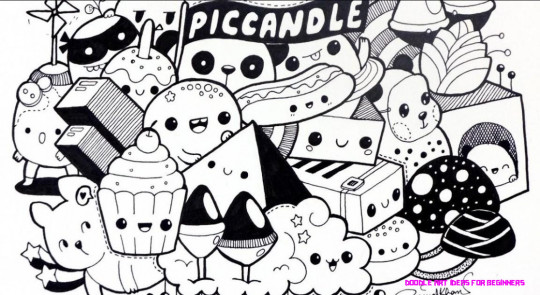
Easy Doodle Art Ideas for Android – APK Download – doodle art ideas for beginners | doodle art ideas for beginners
Why don’t you consider impression earlier mentioned? will be in which amazing???. if you believe therefore, I’l m show you many picture once more beneath:
So, if you like to secure all of these amazing photos about (Five Things Your Boss Needs To Know About Doodle Art Ideas For Beginners | Doodle Art Ideas For Beginners), simply click save link to store the shots to your computer. They are available for save, if you appreciate and want to have it, simply click save badge in the page, and it will be instantly down loaded to your desktop computer.} As a final point in order to grab new and latest graphic related with (Five Things Your Boss Needs To Know About Doodle Art Ideas For Beginners | Doodle Art Ideas For Beginners), please follow us on google plus or book mark this site, we attempt our best to present you daily up grade with all new and fresh graphics. Hope you enjoy staying here. For many upgrades and latest news about (Five Things Your Boss Needs To Know About Doodle Art Ideas For Beginners | Doodle Art Ideas For Beginners) images, please kindly follow us on twitter, path, Instagram and google plus, or you mark this page on bookmark area, We attempt to present you up-date regularly with fresh and new shots, love your searching, and find the best for you.
Thanks for visiting our website, contentabove (Five Things Your Boss Needs To Know About Doodle Art Ideas For Beginners | Doodle Art Ideas For Beginners) published . Nowadays we’re delighted to declare that we have discovered a veryinteresting topicto be reviewed, that is (Five Things Your Boss Needs To Know About Doodle Art Ideas For Beginners | Doodle Art Ideas For Beginners) Many people trying to find details about(Five Things Your Boss Needs To Know About Doodle Art Ideas For Beginners | Doodle Art Ideas For Beginners) and of course one of these is you, is not it?

Zentangles: I'm Hooked! | Zentangle patterns, Doodle .. | doodle art ideas for beginners

How To Sketch Mountain Range / Very Easy and Quick .. | doodle art ideas for beginners

Easy Doodle Art Ideas APK download | APKPure | doodle art ideas for beginners

Mandala | HappyShappy – doodle art ideas for beginners | doodle art ideas for beginners
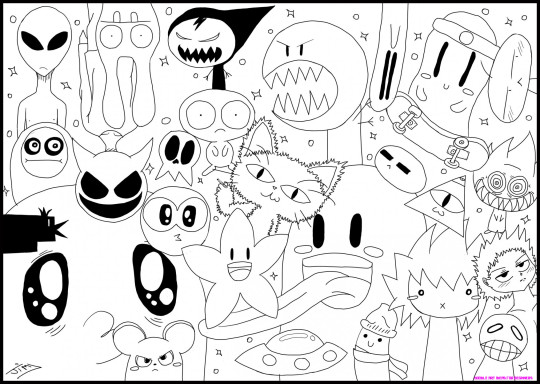
Doodle art to download for free – Doodle Art Kids Coloring Pages – doodle art ideas for beginners | doodle art ideas for beginners
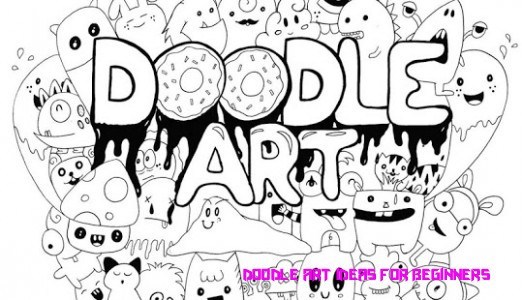
Easy Doodle Art Ideas for PC / Windows 20, 20, 20 / MAC Free .. | doodle art ideas for beginners
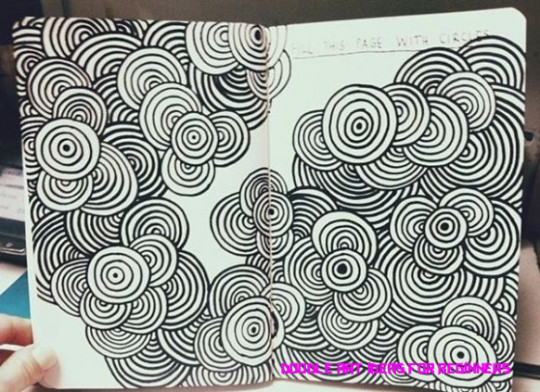
20 Simple and Easy Doodle Art Ideas to Try (With images) | Easy .. | doodle art ideas for beginners
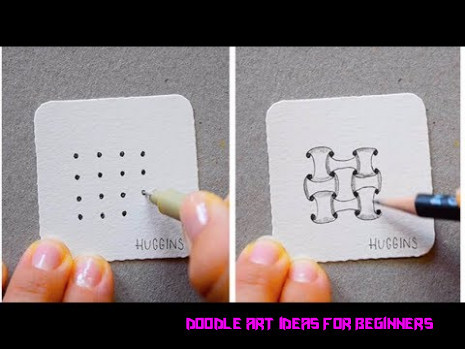
SUPER QUICK DOODLE ART IDEAS FOR BEGINNERS – doodle art ideas for beginners | doodle art ideas for beginners
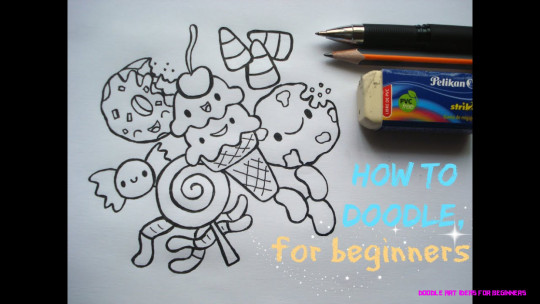
First steps on Doodling, for beginners – YouTube – doodle art ideas for beginners | doodle art ideas for beginners

12 Zentangle Patterns For Beginners, How To Draw Easy .. | doodle art ideas for beginners

Juice 2007 – doodle art ideas for beginners | doodle art ideas for beginners

40 Beautiful Doodle Art Ideas – Bored Art – doodle art ideas for beginners | doodle art ideas for beginners
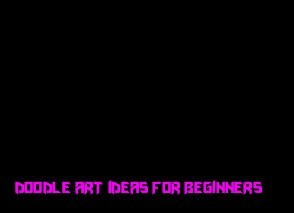
Doodle Art Ideas – Apps on Google Play – doodle art ideas for beginners | doodle art ideas for beginners

Mandala Dot Art Painting Without Dotting tool || DIY .. | doodle art ideas for beginners

Cadre graphique illustration stock. Illustration du fond .. | doodle art ideas for beginners

Chair Doodle Doodle Art Ideas Stock Vector (Royalty Free) 20 – doodle art ideas for beginners | doodle art ideas for beginners

Doodle Art Ideas – Apps on Google Play – doodle art ideas for beginners | doodle art ideas for beginners

Doodle Art – Lessons – Tes Teach – doodle art ideas for beginners | doodle art ideas for beginners

Doodle Art – Lessons – Tes Teach – doodle art ideas for beginners | doodle art ideas for beginners
Painter Legend https://i1.wp.com/www.painterlegend.com/wp-content/uploads/2020/06/easy-doodle-art-ideas-for-android-apk-download-doodle-art-ideas-for-beginners.jpg?fit=1117%2C611&ssl=1
0 notes
Text
Japanese in a month study plan/routine
So this might change, likely will change, but for the moment this is what I’m going to be doing starting today!
1 lesson of Japanese from zero 2. If I have time later on after I do everything for my study routine and I’m feeling up for it I’ll do a lesson of Genki also.
2 Hours using Rosetta Stone and duolingo. Maybe a hour each maybe one day I end up spending more time on duolingo than Rosetta, but this way it’s more flexible and I’m not too worried so long as I get both courses completed by the end of the 30 Days.
1 hour of shadowing practice using the shadowing Japanese book I have and the Ganbatte app on my phone.
Anytime I’m doing chores or running or etc. I’m going to try to shadow the movie Kimi no wa, I have a podcast for it where it’s just the audio. If not kimi no wa then music in Japanese.
I plan on spending around 30 minutes to a hour a day on Minato depending how much time I have, and at the moment because it’s on the computer and mines not working I don’t think I’ll be able to use it today.
I want to complete two lessons per day from my common japanese sentence patterns for effective communication book.
I’m also planning on watching two Japanese language related videos on YouTube per day whether it’s a video in Japanese or teaching.
Each day I will also make a post in Japanese on hello talk to get corrections and also try to talk to some people in Japanese on there.
I plan on learning the 1,000 most commonly used words in Japanese https://learnjapanesedaily.com/most-common-japanese-words.html. A lot of them I’m familiar with already so it shouldn’t be too difficult, I will probably shoot for going through about 50 words via flashcards likely using the Japanese dictionary app or paper flashcards.
Finally each day I’ll make a post here to talk of my progress and my studying, as well as make a video of me speaking Japanese for 5 minutes a day unscripted.

-GOALS-
For goals for each week, this will probably change, I’m not totally sure what I ought to expect each week, but I geuss these are kind of what I’m hoping.
By the end of Week 1– I should know 350 vocabulary words. I think I should know 14 new sentence patterns, and should be able to understand I’m hoping maybe 45% of a video in Japanese. Atm I feel like most I can understand on average maybe 20-30% some videos more some less.
By the end of week 2- I should know 700/1000 of the most commonly used Japanese words and 28 new grammar patterns. I think by now I’m hoping I’ll be able to hold up a short conversation in Japanese maybe 10 minutes, understand around 55% of what I’m watching in Japanese, and type in Japanese, least a few paragraphs without having to look up any words.
By the end of Week 3- I should know all 1000 commonly used Japanese words and will probably learn some more vocabulary as well. If I keep up with the 50 a day then I should know 1,050 new words. 42 new sentence patterns, and should be able to understand maybe 60% of what I’m watching. Hopefully I’ll be able to have longer conversations as well by at least 5 or so minutes. Possibly longer. I should have a much easier time making posts in Japanese I think, as well as speaking. I’m also hoping I’ll understand aroun 45% of what I’m reading in most Japanese books/articles/posts.
The end of week 4- I am hoping to be able to hold a conversation for 20-30 minutes in Japanese, least through texting if not through speaking, (I still need to find a language exchange partner for Japanese), I should have learned around 1,400 words by now, a lot of new grammar, and be able to comprehend by now I’d like to be able to comprehend 70-75% of what I’m watching/listening too though not sure how likely that is. Maybe 50-55% of what I’m reading in books more like 60% for posts or articles I think because I think novels are a little harder for reading than news articles because novels have more vocab.
So this is my goals I geuss for each week where I’m hoping to be by the end of each week this month. I’m hoping to also complete the Rosetta Stone and duolingo courses as well as memorize the 1,000 vocab words and more. I will probably change up my study routine but I might not, I will see I geuss lol. I tried to make it kind of flexible to make it last the whole month easier but idk if it will or not since I often change things up a lot.
On this blog I will also post not only updates with my progress but also notes I take, cool things I learn that I think I ought to share here, and anything to do with the Japanese langauge. After Japanese I plan on picking up chinese mandarin, I already learned a lot but after taking a few years off I’ve forgotten most of it, but I’ll post stuff related to the language I’m learning atm basically.

Thank you for reading!
0 notes
Text
Tag Game!
Tagged by @iwillbeherespn.
Nickname(s): Allie. That’s what most everyone uses.
Zodiac: Pisces.
Height: 5′0″. Yes, the weather’s nice down here. Please get your arm off my head -- I am nOT AN ARMREST
Time: A quarter to six in the morning (I didn’t sleep).
Favorite Band/Artist: Noah Kahan. No contest.
Song Stuck in My Head: “How Do You Sleep?” by Sam Smith.
Last Movie I Saw: In theaters? Avengers: Endgame, I think. But yesterday, I watched God’s Not Dead: A Light in Darkness on Netflix.
Last Thing I Googled: “Rebound” by Abigail Duhon (it’s the second song in the credits of A Light in Darkness).
Other Blogs: @alexisaraindrop, @illfigureitoutialwaysdo, & @iwanttohearyourlaugh.
Do I Get Asks?: No. But I definitley wouldn’t mind!
Why Is My Username?: I came up with a quote in an it’s-three-in-the-morning-and-i-can’t-sleep haze about creating something so great it out-shines the stars. This was before The Greatest Showman came out, BTW.
Following: Deadass 829 people.
Average Amount of Sleep: Bold of you to assume I sleep.
Lucky Number: 2. It’s blue.
What Am I Wearing?: Uh, a black shirt that the cat put a hole in and I darned with blue, purple, and yellow embroidery threads; a pair of black leggings with a hole in the knee I darned and another hole I’ve yet to tackle; and a pair of black, fuzzy socks that belonged to my great grandma.
Dream Job: Not having to work; I’m lazy AF.
Dream Trip(s): I dunno. I’m from the country, but I guess I never really imagined going anywhere. Alaska seems like the plot of a horror movie, but my grandma always talks about how much she liked it there, so I don’t think I’d mind going there.
Favorite Food: I have to pick just one? For a meal, stromboli. For a dessert, Mamaw’s chocolate chip cookies. Oh --! I don’t usually have breakfast because I find it difficult to eat in the morning, but if I do, blueberry muffins with some lemon zest (there no good if you don’t melt butter over them while they’re cooling and sprinkle on some sugar).
Instraments I Play: I learn to play the ukulele off and on. I can only do one strum pattern.
Eye Color: Gray. But I have central heterochromia, so sometimes, they look green.
Hair Color: Brown.
Aesthetic: Overpacking, cracking your neck loudly without touching it, running your hand through water with your fingers splayed, turning the toilet paper roll around to face the right direction, turning the music up when a good song comes on, forgetting to turn it back down, figuring out technology for the older generations, offering others a pocketknife when they need to open something, hitting the target on the first try, saying “Hmm?” when someone asks a question because whatever they were saying wasn’t interesting thirty seconds ago and you stopped listening, silently staring out the window, surprising people just by being yourself, saying something at the same time as someone else, writing and highlighting in your own books, unabashedly correcting someone’s grammar IRL, using both shift keys, shameless self-promo -- You know what, I have an aesthetic board on Pinterest; why don’t you just check that out?
Languages I Speak: English. But I know a little ASL (American Sign Language), and I’m learning Español and Français on Duolingo (it’s free).
Most Iconic Song: I don’t understand this question. The song I think is the most iconic? Queen’s “Bohemian Rhapsody,” obviously.
Random Fact: I have associating grapheme-color synesthesia. Letters and numbers appear in color in my head. I never knew what it was called or that other people had it until my grandma found mention of it in a book on the brain she was reading and said, “Oh, that sounds like what Allie’s always talking about.”
I Tag: No one. I don’t like making people feel like they’re obligated to do things.
0 notes
Text
6 Creative Self-Isolation Activities That Don’t Involve a Binge Watch
As more cities go into lockdown mode and more people around the world retreat into their homes, there’s been a proliferation of recommendations online of books, movies and television shows to breeze through while in self-isolation (you can find our own guide here). But as it becomes increasingly likely that this period of social distancing will continue for at least the next few weeks, it’s time to start thinking of things we can do to pass the time that don’t involve turning on the TV. Read on for a list of self-isolation activities that will challenge your mind, engage your hands and offer a respite from the binge sesh on your couch.
Learn a new skill
Now’s a great time to fire up that Duolingo or Babbel app and refresh your knowledge of whichever foreign language you studied back in high school or college, or even learn an all-new language you’ve always dreamed of being able to speak fluently. According to LiveScience, “learning a second language may help improve brain function regardless of when you start.” If you’ve always wanted to learn how to draw or paint, order a box of supplies online or turn to the myriad apps available on the iPad to get you started, like Procreate, Linea Sketch and Paper by WeTransfer. If you’ve got kids in the house, keep them entertained with New York Times-bestselling author and illustrator Jarrett J. Krosoczka’s daily series that teaches young children how to draw.
Play some brain games
Classic board games—Scrabble, Pictionary, Monopoly—make for great screen-free activities during this period of self-isolation. You could also do a 1000-piece jigsaw puzzle with the whole family, challenge your roommate or partner to a game of chess, or play a competitive game like Taboo or Charades. For a solitary activity that still challenges the brain, sign up for the daily New York Times Crossword, available to Times subscribers at 50% off, for 4 CAD/month or 24 CAD/year.
Take up a craft
Make your self-isolation activities productive. Take up needlework, knitting or any other craft-based activity that involves your hands. We Are Knitters, a Canadian knitting company, sells a variety of kits for petit point, crochet and of course knitting, that include needles, yarn and pattern instructions. Toronto’s Rose City Goods offers a DIY Quilting Kit, which is available for purchase online at a discounted price of 54 CAD. The DIY Kit includes a cotton quilt top, cotton batting, two spools of cotton thread and sewing instructions.
View this post on Instagram
In @kristinfraley’s words: “my workplace is closed for the next few weeks so I’m just catching up on a few projects I have here at home 🌿” #StayAtHome #ChooseJoy
A post shared by WAK 🐑✌🏻 (@weareknitters) on Mar 17, 2020 at 3:05pm PDT
Take online classes
Services like Coursera and Skillshare offer free online classes on a range of subjects, such as animation, creative writing and philosophy. For Ivy League-worthy classes, turn to EdX, which offers free online courses from 140 leading institutions like Harvard and MIT. For something a bit lighter, check out Daily Art, a free app that essentially functions as a mini crash-course in art history. Every day, it presents users with a new work of art—ranging from classic to contemporary—along with a short explanation of the story behind the artwork. The app is available in a range of languages, including Korean, Polish and French.
Take up a home organization project
You know that household chore you’ve been putting off for months? Now might be the time to actually do it. Whether that’s reorganizing your pantry, doing a spring clean of your closet to figure out what you’d like to keep vs donate, repotting your plants, organizing your bookshelves or sorting out that junk drawer (everyone’s got one)—there’s never been a better time to dive in. For some great DIY home ideas, follow blogs like Vintage Revivals and I Spy DIY for inspiration and useful tips.
View this post on Instagram
Are you as obsessed with caning as the rest of the design world!? GOOD!! I’ve got a tutorial on the blog today for this cane panel wall that we built for @real_simple and we are diving deep into the how to! It’s one of my favorite projects ever and I am itching to do more caning soon!! What do you think, is this something you’d try!?Tutorial is linked in my profile! . #fearlessdiy #diy #realsimple #sodomino #showemyourdiy #masterbedroom #bohostyle
A post shared by Mandi Gubler | Fearless DIYer (@vintagerevivals) on Feb 13, 2020 at 2:05pm PST
Soak up some culture
Museums, theatres and concert venues may be closed for the foreseeable future but that doesn’t mean we can’t still get our culture fix. Musicians like John Legend and Neil Young have taken to live-streaming concerts from their living rooms, while The Metropolitan Opera in New York is offering a free opera stream every night. “We’d like to provide some grand opera solace to opera lovers in these extraordinarily difficult times,” the Met’s General Manager, Peter Gelb, said in a press release. “Every night, we’ll be offering a different complete operatic gem from our collection of HD presentations from the past 14 years.” Meanwhile, museums like the Guggenheim in New York, the Musee d’Orsay in Paris and the Tokyo National Museum offer free virtual tours, so you can experience their magic from the comfort of your couch. You can also go inside Toronto’s Royal Ontario Museum and the Vancouver Art Gallery using Google Street View, and check out virtual exhibits from some of Canada’s other cultural institutions here.
The post 6 Creative Self-Isolation Activities That Don’t Involve a Binge Watch appeared first on FASHION Magazine.
6 Creative Self-Isolation Activities That Don’t Involve a Binge Watch published first on https://borboletabags.tumblr.com/
0 notes
Text
Internet Addiction is Real (even when you use it to write about internet addiction)
In October 2015 I started a video game ban that lasted six weeks, and ended around this time that year actually. I didn’t post my reflections about it then, partly because it felt self-aggrandizing and partly because people were kind of shitty when I announced my video game ban, saying things like that they found the internet an important way of connecting with people and that they were going to spam me with videos of puppies now. And yes, it was kind of shitty to say these things to me because their forthrightness that they didn’t have a problem with social media or the internet didn’t change the fact that I do. It’s at minimum rude that not one but three of my friends thought the appropriate response to my struggle was not only to tell me that I didn’t have a legitimate struggle but to say that they were going to undermine my efforts to better myself.
And it did feel like I’d bettered myself. In 2015, in six weeks, I had:
Completed two books, and started two others.
Made my bed every single day
Started exercising intermittently
Learned how to cook two completely new dishes to great success
Been more productive at work
Finished unpacking my bedroom from moving in four months ago
Wrote a published piece on Patheos
Painted my nails twice (something I used to enjoy a lot)
It was actually surprisingly difficult, especially at first. I was spinning my wheels trying to do something that wasn’t video games, and coming up surprisingly short frequently. I tried getting back into whittling, which there was simply not conducive space for; I tried writing daily, which was exhausting and had many of the same pitfalls, as it was still extended periods of time in front of a monitor. But six weeks later, I felt lighter, more productive, and more present. Ultimately, I think this was an important exercise. A reminder that when a want becomes a need, it ceases to serve you.
But now I find myself falling into the same patterns that I’d gotten into in 2015. I spend almost all of my time in front of a computer screen. I work at a computer with unfettered access to the internet and very little structured work, get home, and hop on the computer. I alternatively work and play on the computer from the time I wake up to the time I go to bed. I am in front of a monitor of some kind, for nearly 14 hours every single day.
Is this a bad thing? I don’t live near most of my friends anymore, but they’re on Facebook. I don’t have a TV but I can get news and entertainment from the internet. I am not the kind of person to bash new technology for the sake of its strangeness. But here’s the thing: the biggest detriment for me from this kind of access to the internet, to social media, to the entire compendium of human knowledge and endless possibility, is that it prevents me from completing.
Being able to change tasks to literally anything means that I do change tasks to literally anything. If I don’t want to do the laundry, I can just pick up Flight Rising. If I don’t want to do the dishes, I can snag Monster Super League. If I don’t want to finish my art project, there’s always Pokemon Go. If I don’t want to work on the budget spreadsheet, I can take Office Specialist training. If I don’t want to schedule meetings, I can look up the menu on this restaurant to make sure the receipt is within regulation. If I don’t want to write, I can practice Spanish on Duolingo.
Even when the thing I’m doing is still work, the issue isn’t that I’m not doing work, but that I’ll get five feet from the finish line and change tasks every time. It’s that my brain has somehow decided that being rewarded for starting something new is more important than finishing something old, because that’s how the internet works, so that’s how the world works.
Modern internet culture has no end. There is no finale. Movies that do well get unplanned sequels. Shows that were supposed to end in Season Five get extended to Season Thirteen and die a slow death after everyone has gotten way too sick of it to care. Facebook will literally scroll forever, as will Twitter, Tumblr, Netflix, and Youtube. Games have switched from stories to live services - experiences that are only loosely connected to the vaguest semblance of a plot, and gameplay that you can interact with daily for literally the rest of your life (or until the server goes down).
And so, like layers, my modern interactions with the internet just built on top of one another. Unlike when I could play Legend of Zelda and then Super Mario 64 and then Prince of Persia consecutively, I would start Pokemon Go, continue doing that, pull up Monster Super League, continue doing that, pull up Facebook, Twitter, Tumblr, The New York Times, Flight Rising, YouTube, ad nauseum until checking every “daily” that I had to do went from taking one hour to taking six, or eight, or ten. I feel like I’m constantly trying to “catch up” in order to complete whatever facet of the internet I’d started, while not realizing that they update faster than I could possibly catch up. It’s a common joke in people my age that we’re in a perpetual cycle of promising to catch up with friends. But with the way Facebook rewards shallow, brief, constant interaction, is it really that this is a product of my age, or is it a product of my time? Fifty years ago, did you say the same thing, or did you just write a letter?
Hell, even texting as the alternative to phone calls is just surface-level constant interaction. And yet a text “conversation” takes about five times longer than a phone call, but we justify it because it “doesn’t get in the way” so we’re all doing three things at once, all of the time, because we don’t have time for any of them. I can justify my 14 hours of screen time because I’m gaming, writing, and socializing, while there’s a load of laundry in the wash, and dishes drying in the rack. And that argument makes so much sense until the tasks I’m juggling become less and less significant and more a waste of time. Facebook is genuinely a waste of time if I’m scrolling past 50 different memes that 19 of my friends have shared when the point was supposed to be the people that shared them. It took me I think two weeks to notice that a friend of mine was having a serious emotional issue because I couldn’t hear it through all the social media trash that builds up like oceanic microplastic that you can’t even see but still swallow anyway.
So what do you do? Stop playing games I enjoy and have made friendships from? Cut out social media in my life and consequently stop talking to important friends? Block time wasters on my work computer even though the issue isn’t any one time waster but the way it re-wires my brain to start new tasks in the middle of old ones?
I don’t know what the solution is ultimately. But really all I’m doing is wasting time. I’m writing this at work. I know I’ll have neither the “time” nor the motivation to write this at home. And I’m only writing this instead of doing something more toxic and less valuable because my boss caught me on Facebook today.
So when I say I have a problem relationship with the internet, if your response is to become defensive about that, maybe ask yourself if that defensiveness means that you, too, are only one more clickbait article away from being the kind of person who has to change their Facebook password to a random key mash just to stop themselves from checking it on the clock, and yet can’t motivate themselves to do work instead.
1 note
·
View note